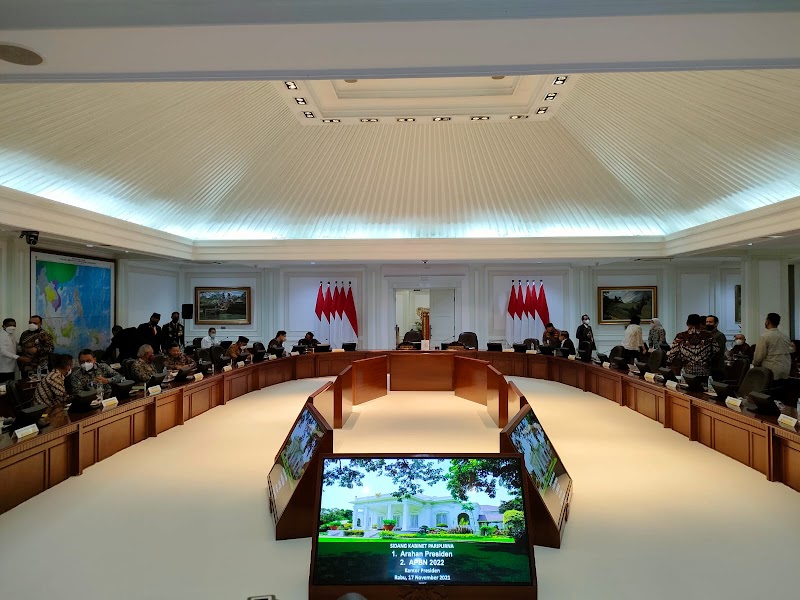Soekarno, born Kusno Sosrodihardjo on June 6, 1901, in Blitar, East Java, was the first President of Indonesia. He was a charismatic leader who played a pivotal role in the Indonesian independence movement and shaped the nation’s early political landscape.
Background and History:
- Soekarno was born into a Javanese aristocratic family but spent much of his childhood in Bali, where he was raised by his maternal grandparents.
- He received a Dutch education and graduated from Bandung Institute of Technology (ITB) as an architect in 1926.
- During his time at ITB, he became involved in nationalist activities and co-founded the Indonesian Nationalist Party (PNI) in 1927.
Ethnicity:
- Soekarno’s ethnic background is diverse, with Javanese, Balinese, and Chinese ancestry.
- His father, Raden Soekemi Sosrodihardjo, was a Javanese school teacher, and his mother, Ida Ayu Nyoman Rai, was a Balinese noblewoman.
- Soekarno’s ethnicity and upbringing gave him a unique perspective and understanding of Indonesia’s diverse cultural heritage.
Achievements and Legacy:
- Soekarno is widely regarded as the father of Indonesian independence.
- He led the Indonesian National Revolution against Dutch colonial rule, which culminated in Indonesia’s independence in 1945.
- Soekarno became the first President of Indonesia in 1945 and served until 1967.
- During his presidency, Soekarno pursued a policy of “Guided Democracy,” which involved close cooperation between the government and political parties.
- Soekarno also championed non-alignment and played a leading role in the Bandung Conference of 1955, which brought together leaders from Asia and Africa to promote peace and cooperation.
Popular Beliefs and Anecdotes:
- Soekarno was known for his charismatic personality and oratory skills, which captivated audiences across Indonesia.
- He was a prolific writer and poet, and his writings continue to be widely read and discussed in Indonesia today.
- Soekarno’s legacy is complex and controversial. His policies and leadership style were sometimes criticized, but his contribution to Indonesian independence and his role as a symbol of national unity remain undeniable.
Emblem of Indonesia
To enrich your insights into presidential figures worldwide, also explore some prominent first presidents from other countries, such as India, Iceland and Hungary. Delving into the leadership journeys of these figures can offer valuable perspectives on their historical significance and pivotal roles in shaping global politics.
The official residence and symbol of the Indonesia President
10 Iconic Presidents Who Shaped Indonesia’s History

Here are 10 of the most popular presidents in Indonesia’s history:
- Sukarno
- Suharto
- B.J. Habibie
- Abdurrahman Wahid
- Megawati Sukarnoputri
- Susilo Bambang Yudhoyono
- Joko Widodo
- Soekarno-Hatta
- Mohammad Hatta
- Mohammad Jusuf Kalla
Sukarno, also known as Indonesia’s founding father, played a significant role in the country’s struggle for independence. He is highly respected for his charismatic leadership and Pan-Arab and anti-imperialist policies.
Suharto, a military general, served as Indonesia’s second president for over three decades. His New Order regime brought stability and economic growth to the nation, but also faced criticisms for human rights abuses.
B.J. Habibie, the country’s third president, is known for his technological and industrial advancements, particularly in the aerospace and defense industries. He initiated political reforms and paved the way for democracy in Indonesia.
Abdurrahman Wahid, commonly known as Gus Dur, was the country’s fourth president. He championed religious tolerance and democracy, and his presidency marked a significant shift towards more inclusive and democratic governance in Indonesia.
Megawati Sukarnoputri, the daughter of Sukarno, became Indonesia’s first female president. She promoted social justice and nationalism during her tenure, and also focused on issues such as poverty reduction and agricultural development.
Susilo Bambang Yudhoyono, the sixth president of Indonesia, won several terms in office and was widely respected for his economic reforms and efforts in combating corruption. He prioritized education, healthcare, and infrastructure development.
Joko Widodo, popularly known as Jokowi, is the current president of Indonesia. He has been praised for his commitment to infrastructure development, poverty alleviation, and bureaucratic reform. He has also focused on social welfare programs and improving access to education.
Soekarno-Hatta, the duo of Sukarno and Mohammad Hatta, played instrumental roles in Indonesia’s independence movement. Sukarno became the first president, while Hatta served as the first vice president. They both had significant contributions to the nation’s early years.
Mohammad Hatta, aside from his role as vice president, is also hailed as the Father of Indonesian Economics. He emphasized economic independence and was an advocate for industrialization and diversification of the country’s economy.
Mohammad Jusuf Kalla, the ninth vice president of Indonesia, served alongside Susilo Bambang Yudhoyono. He focused on poverty alleviation, regional development, and inter-religious dialogue during his tenure.

